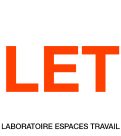Accueil > Centres de ressources > Développement durable > Actualités > 27/11/20 - Appel à candidatures - Post-doctorat (research associate) - (...)
27/11/20 - Appel à candidatures - Post-doctorat (research associate) - RECOTTE project "RECOnversion des Territoires pour la Transition Ecologique"
vendredi 27 novembre 2020
Appel à candidatures dans le cadre d’un post-doctorat (research associate) pour le projet RECOTTE project (RECOnversion des Territoires pour la Transition Ecologique) conduit par le Laboratoire Liser du Luxembourg Institute of Socio-Economic Research de l’Université du Luxembourg. Démarrage dès que possible, CDD de 2 ans de 40 heures par semaine.
"The RECOTTE project deals - both in a scientific and an applied perspective - with ecological transition at the local cross-border level. The transition cannot take place without citizen involvement and institutional support to stimulate the changes necessary to adapt our lifestyles. Thus, it must be carried out gradually and be led and supported by a diversity of actors. But this crucial stage is exposed to many uncertainties. Although the EU has set guidelines for dealing with climate change following the example of the European Green Deal, although each Member State has defined its own National Energy and Climate Plan, divergences are appearing between territories in the application of these policies, which makes their articulation at local and cross-border level complex. In addition, the municipalities seem to be insufficiently organised and equipped to take the bend of the ecological transition and to respond to these challenges. The RECOTTE project thus aims to support local actors in their transition approaches, by bringing out potential cross-border synergies to respond jointly to the climate and energy challenges of the future, and by co-constructing lever projects with local actors in order to carry out joint actions."
CONTEXTE
"The ambition of the RECOTTE project is threefold :
- To propose an innovative methodology to determine the priorities and initiatives to be carried out at local cross-border level in terms of ecological transition ;
- To organise the resilience of the cross-border territorial system by giving priority to creativity and imagination in order to face the environmental, economic and social risks of the future and to respond to the challenges of ecological transition ;
- To test this methodology on three Walloon, French and Luxembourg cross-border urban centres of the former industrial basin which present different configurations and intensities of cross-border cooperation : the cross-border conurbation of Alzette-Belval ; Messancy/Aubange/Pétange ; Arlon/Steinfort.
The metropolitan area of Luxembourg, located in the centre of the Grande Région, is characterised by strong interdependencies between border territories, where the economic attractiveness of Luxembourg exerts an intense polarisation on the neighbouring Belgian, French and German territories, particularly on the labour market. This context leads the resident populations to share a common destiny despite strong competition and persistent territorial inequalities. In addition, the
unsustainability of this cross-border living area is one of its specific features (high CO2 emissions, long commuting distances, strong pressure on land, etc.). In this context, working towards ecological transition necessarily involves a response that is not only national but also cross-border, i.e. common and shared with neighbouring territories.
The team, consisting of researchers from the LISER and other Belgian, French and Luxembourg partners, will support the Research Associate and in the implementation of the various actions relating to the project.
MISSIONS
- Collecting information from local actors on ecological transition : (i) draw up a complete picture of the transition dynamics at the local level and of the actors involved in these transition processes, and (ii) conduct a series of interviews with actors directly or indirectly involved in ecological transition ;
- Analyse interviews and identify emerging cross-border priorities within border territories in relation to ecological transition ;
- Animate workshops and focus groups, and organise collaborative working sessions with a view to raising the awareness of different local publics about the challenges of ecological transition and to build collectively cross-border lever projects ;
- Publish academic articles in international peer-reviewed journals ;
- Participate in other study and research activities of the Urban Development and Mobility Department ;
- Write a research project to obtain external funding.
PROFIL RECHERCHÉ
- PhD in human geography, spatial planning, ecology or other social and environmental sciences if the qualifications obtained are in line with the expectations of the position ;
- Publications and research works on issues related to ecological transition, cross-border cooperation, urban renewal and governance ;
- Strong skills in qualitative survey techniques ; knowledge of methods associated with Discourse Network Analysis (DNA) would be an asset ;
- Experience in the organisation and animation of workshops and focus groups ;
- Proficiency in French is essential for writing reports and textual analysis. A good understanding of Luxembourgish is an asset ;
- Fluency in English, both spoken and written, is imperative for professional integration within the Institute.
INFORMATIONS PRATIQUES
Date limite de candidature : le 27 novembre 2020.
Adresse d’envoi : recruitment@liser.lu
Modalités : CV, lettre de motivation, liste de recherches liées au thème du projet, copy du dernier diplôme obtenu, un ou deux articles scientifiques, deux lettres de recommandation.


